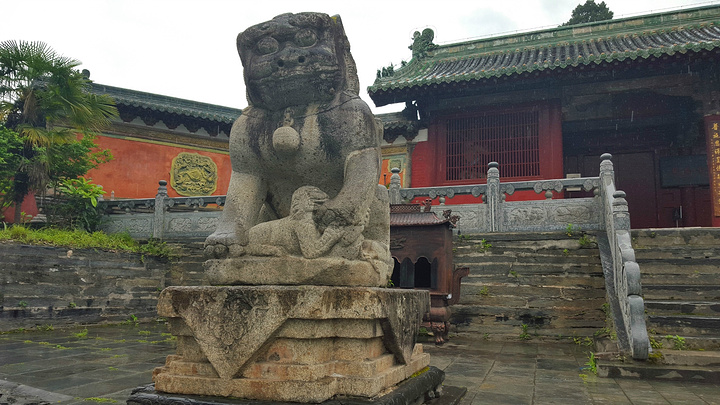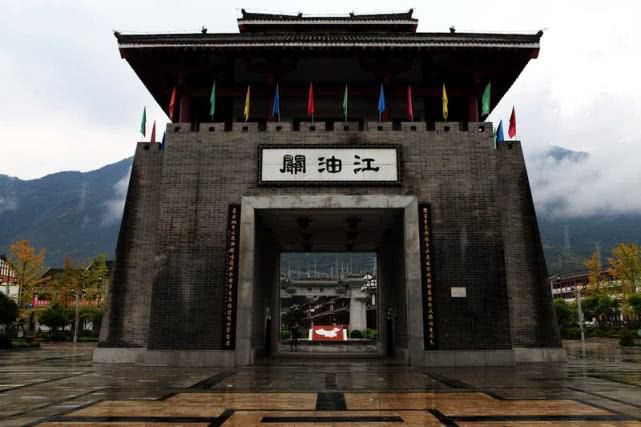Where is Li Ziqi's hometown Pingwu County, Mianyang City, Sichuan Province, China is the hometown of Li Ziqi, Pingwu is in the north of Mianyang, located in the northwest of the Sichuan Basin, located in the upper reaches of the Ful River, east of Qingchuan County, south of Beichuan County, west of Songpan County, north of Gansu Province, southeast of Jiangyou City, northwest of Jiuzhaigou County, is the gateway to the famous scenic area Jiuzhai, Huanglong, known as “the world’s first county of pandas “the reputation.
Pingwu County is the territory of ancient times are the Qiang Department of the dictionary of ethnic minorities living in the area. Because the natural environment is relatively obstructed, the ancient Qiang and the Qiang heritage is still living in the county’s high mountains and dense forests, retaining the ancient and common ethnic customs. The Baima people living in the northwestern part of the county, in the absence of ethnic identification conditions at the beginning of liberation, were mistakenly identified as Tibetans and customarily called the Baima Tibetans.
Their religious beliefs are still in the primitive state of animism, worshiping nature and the sacred mountain “White Horse Master”, and the most important religious activity is dancing “Cao Gai”. White horse people’s clothing is very characteristic, men’s clothing is white or green right cardigan, wearing a wide belt; women’s clothing is white or colorful long shirt, the hem of the pleated skirt, the upper chest, shoulders, sleeves and other places and the hem of the colorful decorations, chest wear fish bone plate, waist tie keshi colored belt, and with a string of copper coins; men and women are wearing keshi disc-shaped ruffled white cashmere hat, the top inserted one or several white rooster tail feathers, as the nation’s symbol. The White Horse people are hospitable and can sing and dance well.
In addition to their common culture, Pingwu County also has scenic attractions.

The temple was built in the fifth year of Ming Emperor Yingzong’s reign (1440) and was designated as a provincial cultural relics protection unit by the Sichuan Provincial People’s Committee in 1956 and was upgraded to a national cultural relics protection unit by the State Council in 1996.

Shu Han Jiangyou Pass: Located in the town of Nanba, Pingwu County, the Three Kingdoms historical site of Jiangyou Pass, formerly known as Jiangyou garrison, is Liu Bei into Sichuan in the future, to prevent Cao Cao forces southward across the Motianling, in the Eastern Han Dynasty, Emperor Xian Jian An 24 years (219) established a military fortress. In the vicinity of Jiangyou Pass site, there are prime attractions such as Niu Xin Mountain, Feng Ying Mountain, Ding Dang Spring, Ming Yue Du, etc., as well as famous monuments such as Li Bai Reading Platform, Li Long Qian Ancestral Hall, Yu Xu Guan, Ma Miao’s wife Li’s Hometown Monument, Wu Daozi’s painted statue of Zhen Wu Ancestor Monument, and Song Huizong’s book Imperial Hand Edict Monument.

Xue Baoding Nature Reserve: The reserve is located in the mountainous region of southwest China, the hinterland of the Minshan Mountain System, where the giant pandas are concentrated, with a high density of distribution and good ecological protection. It is rich in flora and fauna resources, with high distribution density and large number of giant pandas as the primary protection object, well-preserved giant panda habitat, and large habitat area. To the north of the reserve is Huanglong Nature Reserve, to the west is Baiyang Nature Reserve, and to the south is Katakou Nature Reserve, which is a vital component of the corridor belt of giant pandas in the Minshan Mountain System.















